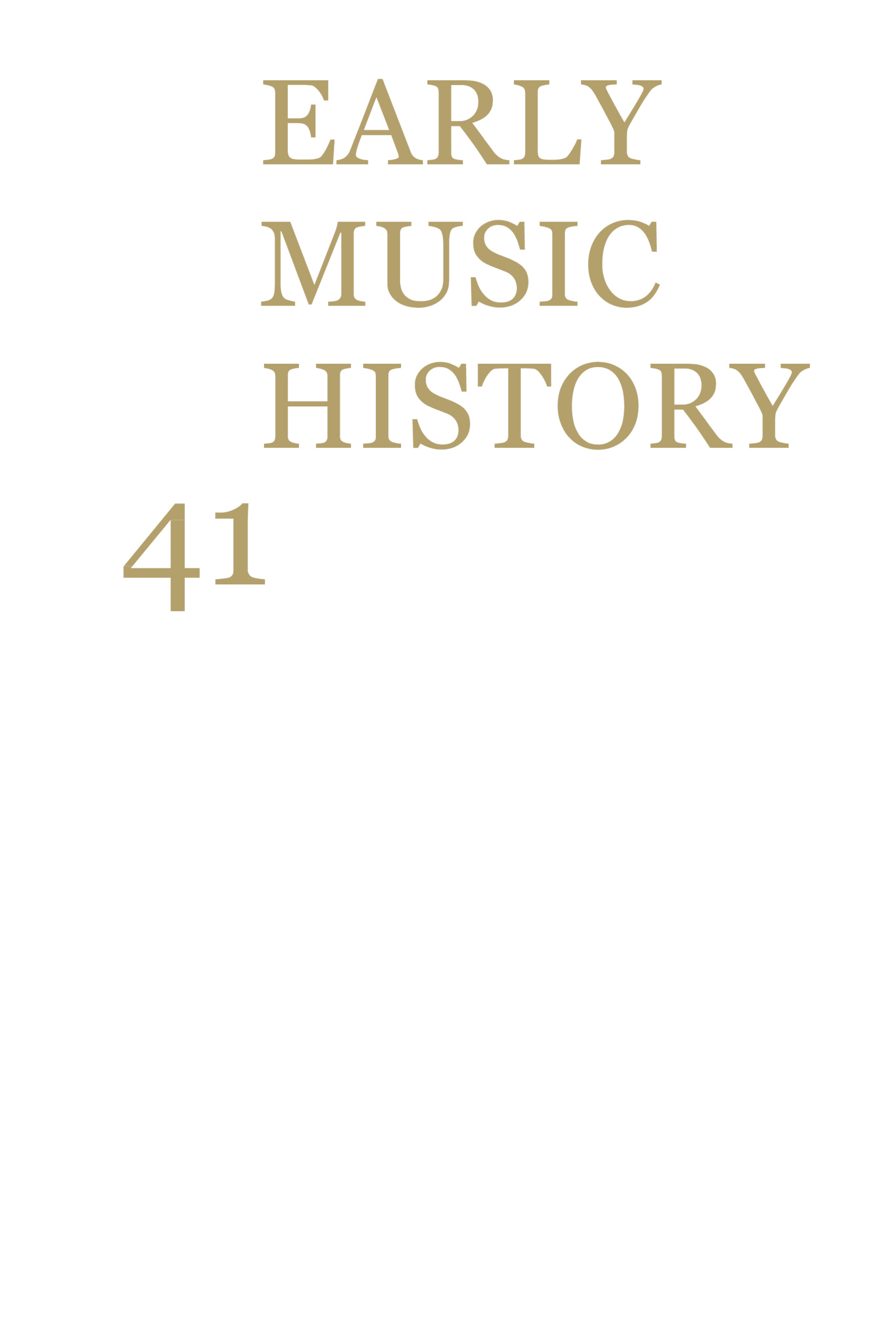Article contents
‘HOW HARD AN ENTERPRISE IT IS’: AUTHORIAL SELF-FASHIONING IN JOHN DOWLAND’S PRINTED BOOKS
Published online by Cambridge University Press: 01 October 2007
Extract
The naming of John Dowland as ‘Author’ on the title page of his publication The First Booke of Songes or Ayres (1597) suggests a proprietary relationship between the composer and his work. This proprietary relationship is, perhaps, reinforced with the alignment of Dowland’s intellectual activities as ‘author’ with the notions of ‘composition’ and ‘invention’ in the same passage. All three terms could be used by the late sixteenth century to refer to notions of creativity, individual intellectual labour or origination. While many early examples of the use of ‘author’ refer specifically to God or Christ as creator, such as Chaucer’s declaration that ‘The auctour of matrimonye is Christ’, by the sixteenth century it was increasingly used to refer to an individual originator of intellectual or artistic creation closer to the modern sense of the word. Its sixteenth-century usage is, for instance, reflected in the title ‘A tretys, excerpte of diverse labores of auctores’, or as in a reference in 1509 to ‘The noble actor plinius’. Likewise, ‘invent’ or ‘inventor’ could be used to refer to the process of individual intellectual creation, exemplified by its use in 1576 ‘Your brain or your wit, and your pen, the one to invent and devise, the other to write’, while ‘compose’ could mean to make, to compose in words, ‘to write as author’ or, more specifically, to write music.
- Type
- Research Article
- Information
- Copyright
- Copyright © Cambridge University Press 2007
- 1
- Cited by




